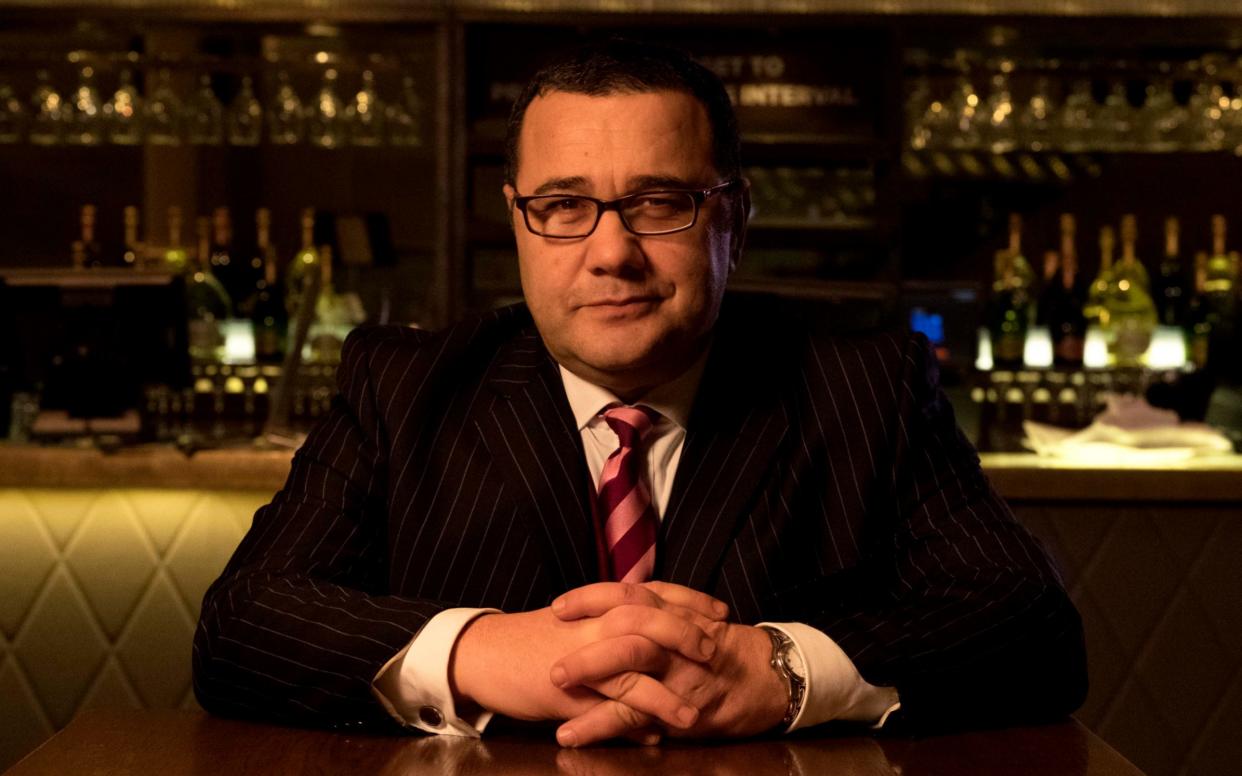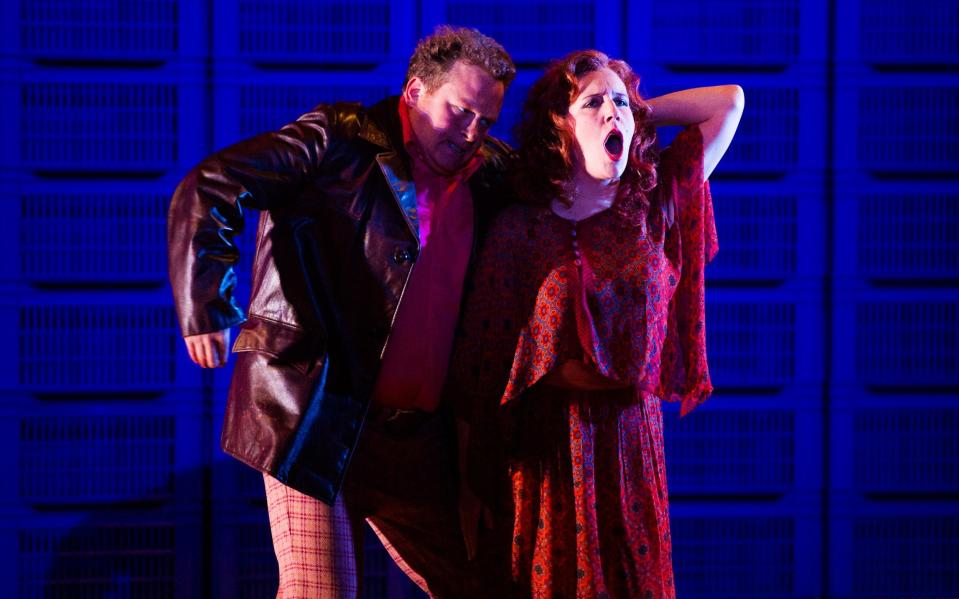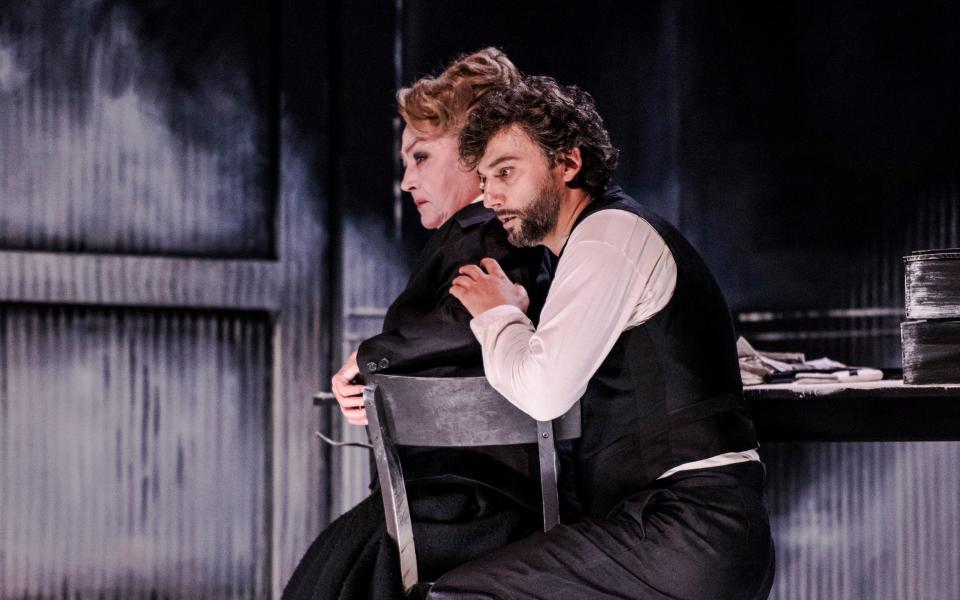Opera boss Michael Volpe: ‘The government’s view of high art is bo----ks’

As founder of Opera Holland Park, Michael Volpe was known for staging the “stab-and-sob” works that captured his attention as a teenager. The operas he programmed, such as Mascagni’s Cavalleria rusticana, were violent, passionate and often catastrophic. Since his retirement from the west London company in 2020, many opera bosses have gone through catastrophes of their own.
Public subsidy for Britain’s leading opera companies has been slashed, with millions of pounds shifted from English National Opera (ENO), the Royal Opera House and Glyndebourne in the Arts Council’s latest funding round in the name of “levelling up”. Adding insult to injury, almost half of all Brits would not notice if all the nation’s opera houses were closed overnight, according to a new survey.
Despite the current woes, Volpe remains an optimist — but insists that opera “needs to reform”. The most pressing issues facing British opera in the current climate, by his telling, are a combination of conservatism and profligacy at the big houses, as well as a paucity of medium-sized companies that can “give tonnes of singers work”.
Opera costs a lot to put on compared with other performing arts, especially the grand opera seen at Covent Garden or the Coliseum. Even after the Arts Council’s cuts, opera companies are in line to receive £30 million annually, almost half the entire music budget. “I do think we have quite a lot of entitlement in opera. And it is an expensive art form,” he says. “But there’s expensive and there’s expensive. Pro rata when you’ve got a chorus and an orchestra, it’s going to be more expensive. But do you have to spend £500,000 on a set? What we should be doing is spending more of our money on giving people regular work.”
Volpe says spending huge sums has become a habit: “It just becomes your normal way of doing things.” When he ran Holland Park, Volpe would review spending each year and invariably found savings of about £50,000 on a modest £4 million budget by negotiating better contracts for the building of sets and other costs.

I meet Volpe at a pub garden in Hammersmith, west London, on a spring morning. Within 15 minutes the no-nonsense bruiser orders a half-pint of London Pride. There is no stopping him once he gets going. We talk about how the Arts Council is to convene meetings of opera leaders to plot a path forward.
Volpe is sceptical about how useful these talking shops will prove to be and fears that the largest companies, already burned by the reduced public cash, will close ranks without helping the smallest players in the industry. “The big funding companies are gonna go one way and one way only: status quo, more money. They’re not gonna really care about the rest of the opera business,” he says.
We could do worse than learn from the Germans, according to Volpe. “If we’re going to get everybody trying it out, in Bristol or some small Midlands town, we need to have companies of a decent size, a bit like Germany,” he says. “And they all run on the repertory ensemble system.” Volpe has set up a new company, If Opera, on those lines to shake things up — and he does not get any Arts Council cash.
The son of Italian immigrants, Volpe grew up on the Fulham Court estate in west London and became enamoured with opera after he won a place at Woolverstone Hall, a non-fee-paying boarding school near Ipswich that was known as “the poor man’s Eton”. In his second memoir, Do I Bark Like a Dog?, he writes that he quickly became hooked after becoming exposed to opera in the school choir.

Which brings us on to opera’s other big problem. Volpe reckons there are not enough children getting interested in music, especially at state schools, and we have an “obsession” with kids learning to play instruments. Instead, Volpe says the key is to try and turn children into future audiences by exposing them to the art form in their formative years. “People say, ‘Well, kids don’t want to listen to opera.’ Well, they don’t want to f—ing do maths either, but we make them,” he says. “We should approach it that way: an hour or two every week, where a classroom of eight-year-olds sit and the teacher says, ‘Right, today, we’re going to listen to a symphony, then we’re going to talk about it and you’re going to write how you feel, what you thought.’”
The attitude to opera in this country was perhaps best illustrated in recent times when Dominic Raab, then the deputy prime minister, called his Labour opposite number, Angela Rayner, a “champagne socialist” after she was photographed with a glass of bubbly at Glyndebourne. “When Raab said that he thought he was being clever, he thought it was a gotcha,” Volpe says. “But it showed what the view of classical art is at the higher echelons of government and it’s, well, bollocks.”
While many of his fellow opera bosses are despairing at their current predicament, Volpe says the chance to change the form for the better must not be missed. “The mood around opera and all classical music is very, very grim. We are under fire and because opera gets all the money we are an easy target” he says. “But I think there’s a fantastic opportunity.”
He points to stripped-back productions staged on trucks in car parks and Daisy Evans’s acclaimed small-scale Bluebeard. “It shows that the art itself, on a visceral level, is what counts,” says Volpe. “All the window-dressing and the huge sound of that 70-piece orchestras is wonderful but, it’s not absolutely necessary to provide those incredible experiences.”
Do I Bark Like a Dog? How an Italian Family History Shaped a Boy in London by Michael Volpe is published by Renard Press

